Find Help
More Items From Ergsy search
-
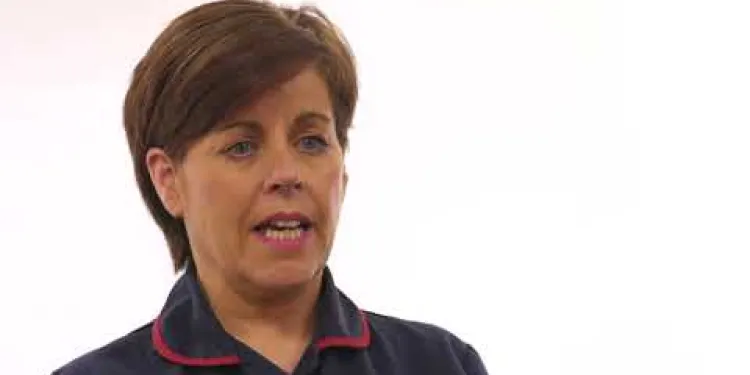
Ovarian Cancer
Relevance: 100%
-

Raising awareness of ovarian cancer
Relevance: 91%
-
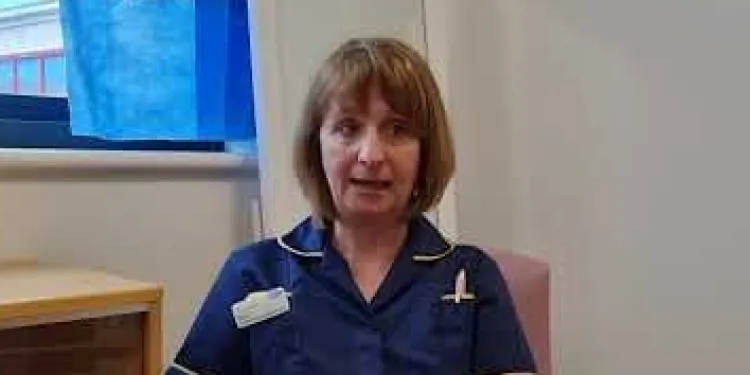
Ovarian cancer - signs and symptoms to look out for
Relevance: 84%
-

What is a CA-125 test?
Relevance: 42%
-
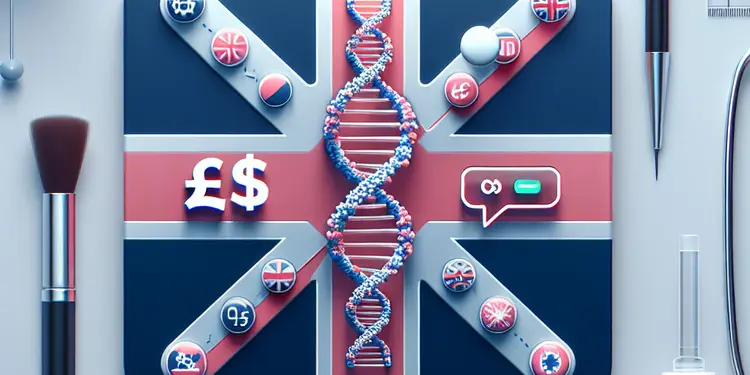
Is genetic screening available for cancer risk?
Relevance: 40%
-
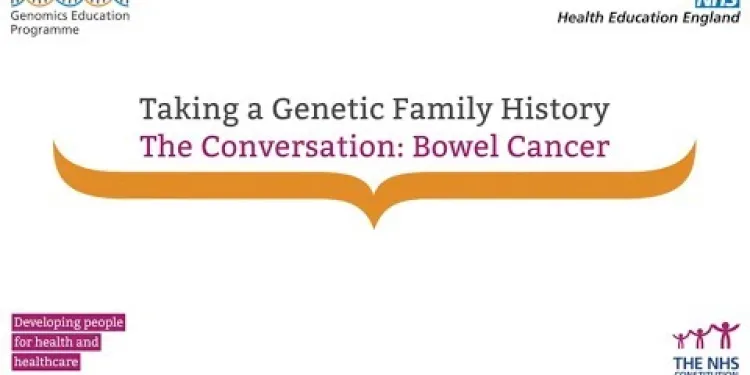
Taking a Genetic Family History - The Conversation (Bowel Cancer)
Relevance: 34%
-
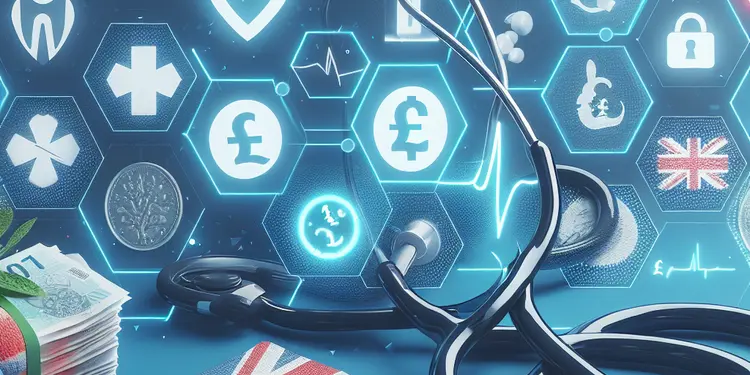
Are there any risk factors that increase the need for cancer screening?
Relevance: 33%
-
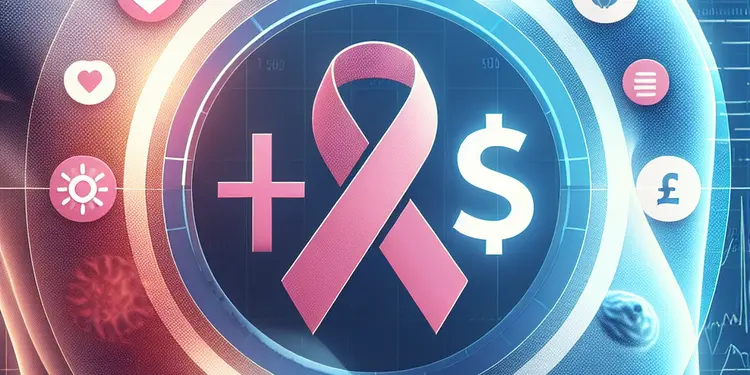
How often should I get screened for breast cancer?
Relevance: 33%
-
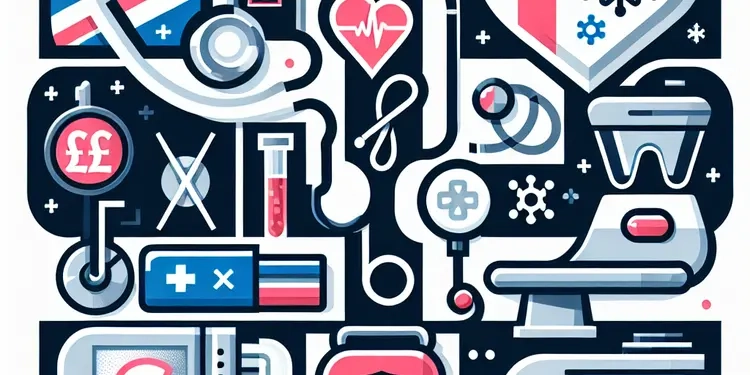
What kinds of cancer screening are available?
Relevance: 32%
-
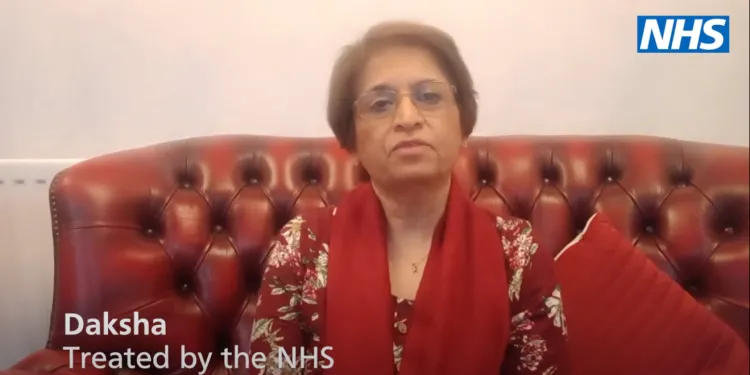
What is Cancer?
Relevance: 31%
-
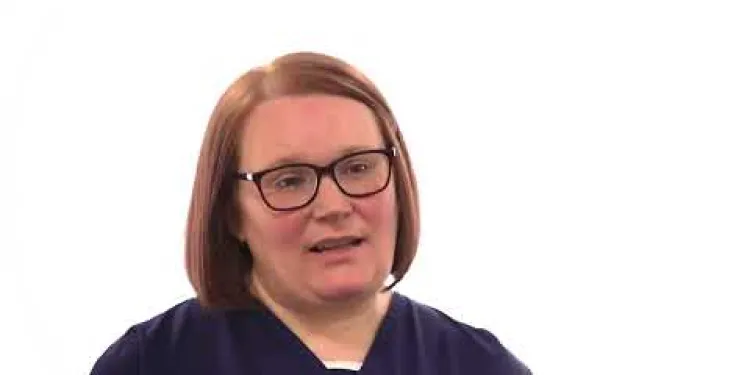
Vaginal Cancer
Relevance: 31%
-
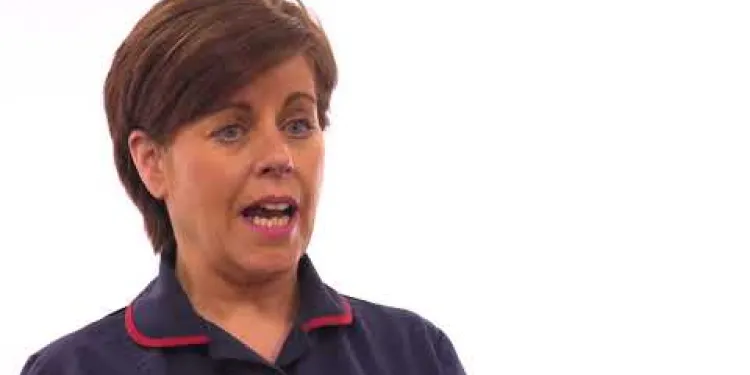
Endometrial Cancer
Relevance: 31%
-

What are the risk factors for bowel cancer?
Relevance: 31%
-
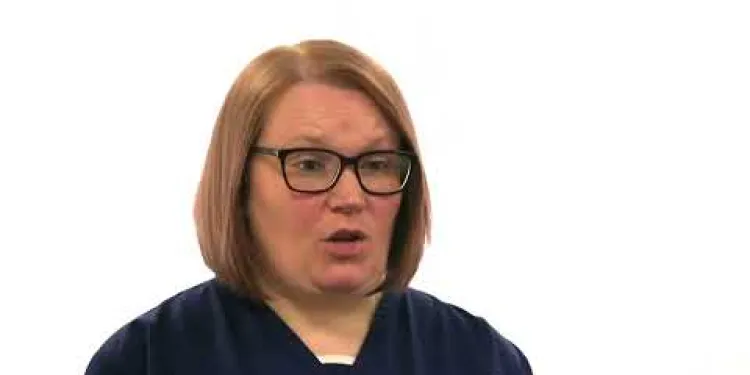
Vulval Cancer
Relevance: 31%
-
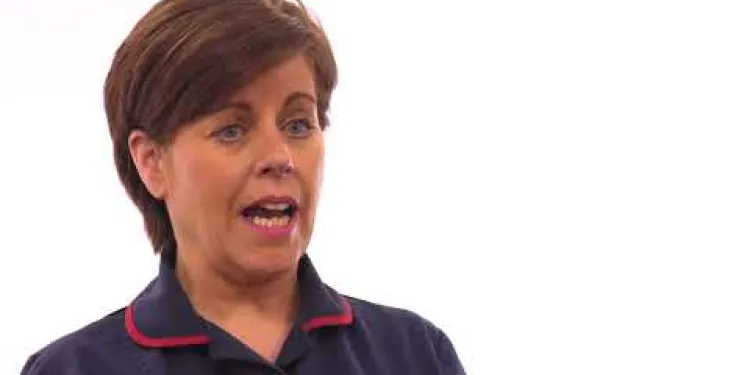
Endometrial Cancer
Relevance: 31%
-
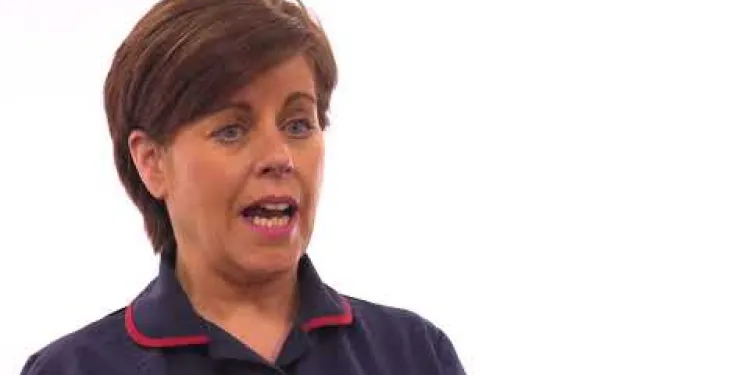
Endometrial Cancer
Relevance: 31%
-
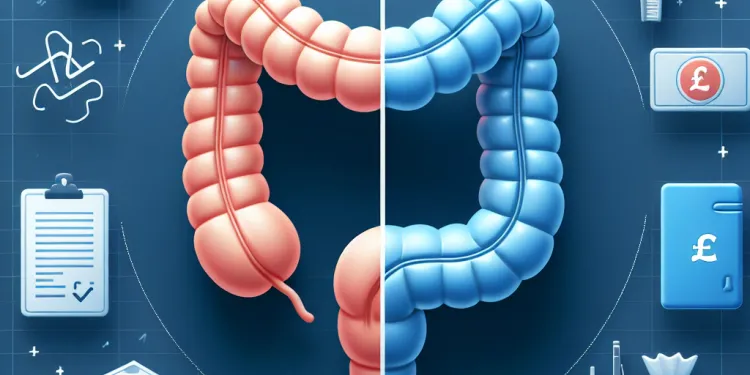
What is the difference between colon cancer and rectal cancer?
Relevance: 31%
-

What factors increase my risk of colorectal cancer?
Relevance: 30%
-

What is cancer screening?
Relevance: 30%
-

What is testicular cancer?
Relevance: 30%
-

What is colorectal cancer?
Relevance: 30%
-

What is Bowel Cancer?
Relevance: 30%
-
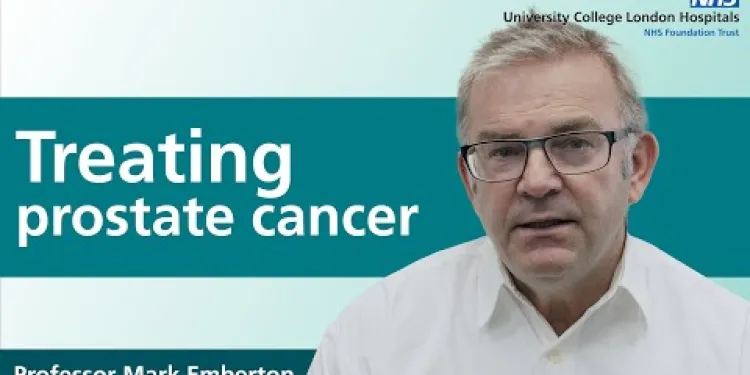
Treating prostate cancer
Relevance: 30%
-
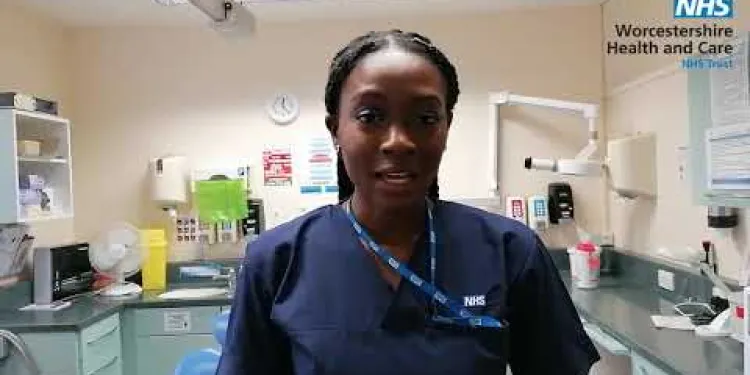
Mouth Cancer Awareness
Relevance: 30%
-

What is testicular cancer?
Relevance: 30%
-
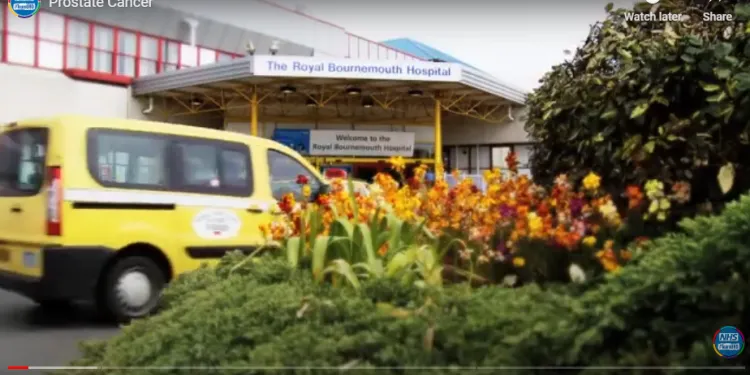
What is Prostate Cancer?
Relevance: 30%
-

What is testicular cancer?
Relevance: 30%
-
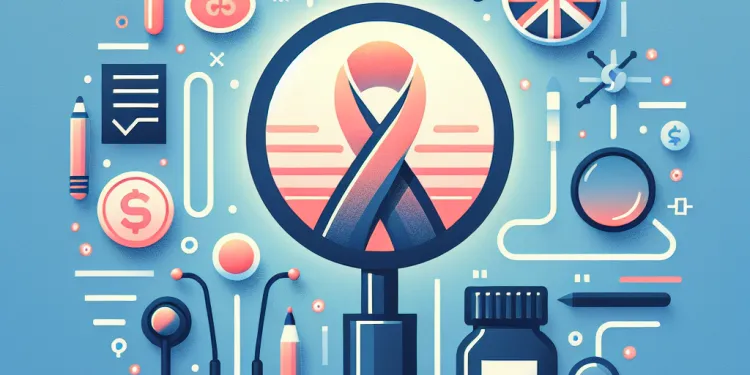
Is testicular cancer treatable?
Relevance: 30%
-

Skin cancer education
Relevance: 30%
-
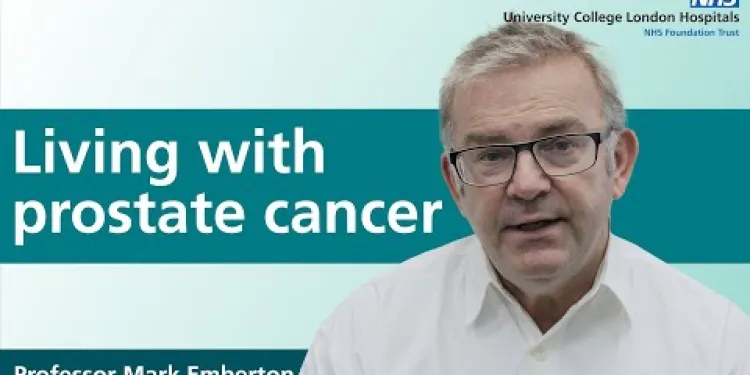
Living with prostate cancer
Relevance: 30%
-
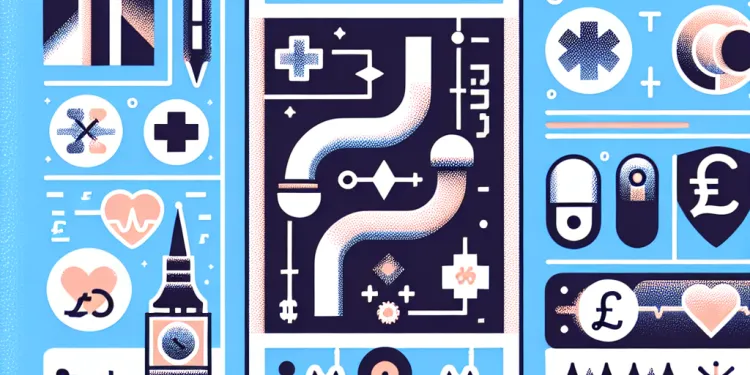
What is Pancreatic Cancer?
Relevance: 29%
-

Mouth Cancer Infomercial
Relevance: 29%
-
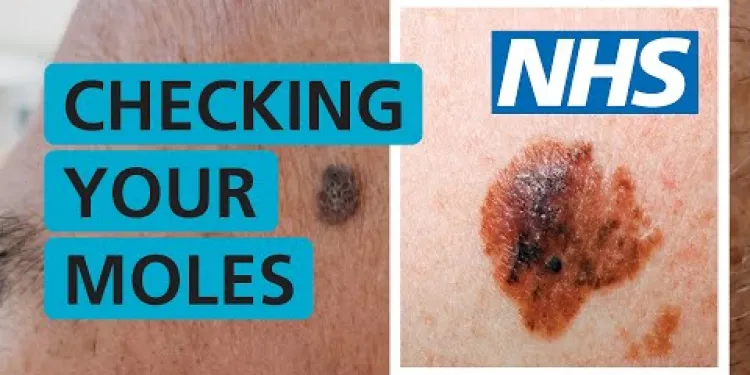
Skin Cancer - How do I check if my mole is skin cancer? | NHS
Relevance: 29%
-

Breakthrough in Cancer Treatment Offers Hope for Prostate Cancer Patients
Relevance: 29%
-
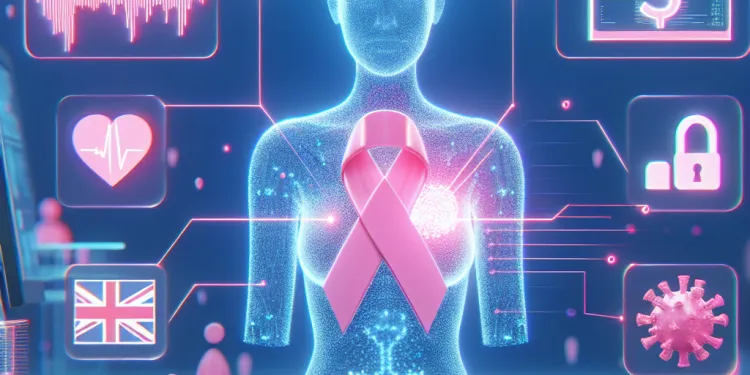
AI Breast Cancer Screening in the UK
Relevance: 29%
-

How common is testicular cancer?
Relevance: 29%
-

What causes testicular cancer?
Relevance: 29%
-
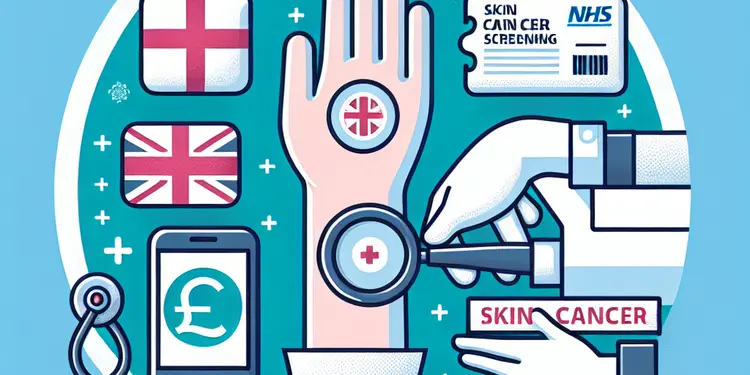
What is a skin cancer screening?
Relevance: 29%
-

What are the stages of testicular cancer?
Relevance: 28%
-

How is prostate cancer treated?
Relevance: 28%
Raising Awareness of Ovarian Cancer
Understanding Ovarian Cancer
Ovarian cancer is a serious, life-threatening condition that affects the ovaries, part of the female reproductive system. It is the sixth most common cancer in women in the United Kingdom, with more than 7,000 new cases diagnosed each year. Unfortunately, ovarian cancer often goes undetected until it has spread within the pelvis and abdomen, making it more challenging to treat.
Importance of Early Detection
Early detection of ovarian cancer can significantly improve survival rates. However, early symptoms can be vague and easily mistaken for other, less severe conditions. Common symptoms include persistent bloating, pelvic or abdominal pain, difficulty eating, and an increased need to urinate. If you experience these symptoms regularly over a few weeks, it is crucial to consult a healthcare professional. Early diagnosis can lead to more effective treatment options and a better prognosis.
Risk Factors and Prevention
Several risk factors can increase the likelihood of developing ovarian cancer. Age is a significant factor, with most cases occurring in women over 50. A family history of ovarian or breast cancer also elevates the risk, as does inherited genetic mutations such as BRCA1 and BRCA2. Additionally, factors such as endometriosis, hormone replacement therapy, and obesity can contribute to the risk. While there is no definitive way to prevent ovarian cancer, understanding and managing these risk factors is essential for early detection and prevention.
Support and Resources in the UK
In the United Kingdom, several organisations provide support and resources for those affected by ovarian cancer. Target Ovarian Cancer offers comprehensive information, support services, and campaigns to raise awareness and fund research. The Ovarian Cancer Action charity focuses on research, awareness campaigns, and supporting women diagnosed with the disease. It's essential to utilise these available resources for guidance, support, and education concerning ovarian cancer.
How You Can Help
Raising awareness about ovarian cancer is crucial for early detection and better outcomes. You can help by educating yourself and others about the symptoms and risk factors associated with the disease. Participating in local awareness campaigns, fundraising events, and sharing information on social media can make a significant impact. By working together, we can improve early detection rates and support those affected by ovarian cancer in the United Kingdom.
Raising Awareness of Ovarian Cancer
Understanding Ovarian Cancer
Ovarian cancer is a type of cancer that starts in the ovaries. The ovaries are part of a woman's body that helps make babies. Ovarian cancer is serious and can be very dangerous. In the UK, it is the sixth most common cancer in women. More than 7,000 women find out they have it each year. Often, ovarian cancer is not found until it has spread inside the body, which makes it harder to treat.
Importance of Early Detection
Finding ovarian cancer early can make a big difference. If doctors find it early, women have a better chance of getting better. But, the signs of ovarian cancer can be hard to notice. They can feel like less serious problems. Some signs are feeling very full or bloated, pain in the belly, trouble eating, and needing to pee more often. If you feel these things for a few weeks, you should talk to a doctor. Finding it early can help you get better treatment and have a better chance of recovery.
Risk Factors and Prevention
Some things can make it more likely to get ovarian cancer. Older women, especially those over 50, have a greater risk. If your family members have had ovarian or breast cancer, your risk is higher. Some genetic changes in the body can also increase risk. Other risks include endometriosis, hormone therapy, and being overweight. You cannot completely prevent ovarian cancer, but knowing these risks can help you find it early and plan for prevention.
Support and Resources in the UK
There is help for people with ovarian cancer in the UK. Target Ovarian Cancer gives lots of information and support. They also work to help people know more about ovarian cancer and raise money for research. Ovarian Cancer Action is another group that helps with research and supports women with ovarian cancer. It is important to use these resources for help, information, and learning more about ovarian cancer.
How You Can Help
It is very important to help people know about ovarian cancer so it can be found early. You can help by learning about the signs and risks and telling others. Join local events to raise awareness, help raise money, and share information online. Working together can help more women find ovarian cancer early and get the support they need in the UK.
Frequently Asked Questions
What is ovarian cancer?
Ovarian cancer is a type of cancer that begins in the ovaries, which are part of the female reproductive system responsible for producing eggs and hormones such as oestrogen and progesterone.
What are the symptoms of ovarian cancer?
Symptoms of ovarian cancer can include bloating, pelvic or abdominal pain, difficulty eating or feeling full quickly, and urinary symptoms such as urgency or frequency.
How common is ovarian cancer in the UK?
Ovarian cancer is the sixth most common cancer in women in the UK, with approximately 7,500 new cases diagnosed each year.
Who is at risk of developing ovarian cancer?
Risk factors for ovarian cancer include age (most cases occur in postmenopausal women), a family history of ovarian or breast cancer, genetic mutations (BRCA1 and BRCA2), and reproductive history.
Can ovarian cancer be detected early?
Early detection of ovarian cancer is challenging due to nonspecific symptoms and the lack of an effective screening test. It's important to be aware of the symptoms and consult a GP if you experience any persistent changes.
How is ovarian cancer diagnosed?
Diagnosis of ovarian cancer usually involves a combination of pelvic examination, ultrasound scans, CA-125 blood tests, and, if needed, a biopsy.
What are the treatment options for ovarian cancer?
Treatment for ovarian cancer may include surgery to remove the tumour, chemotherapy to kill cancer cells, targeted therapy, and, in some cases, radiotherapy.
What are BRCA1 and BRCA2 genes?
BRCA1 and BRCA2 are genes that produce proteins responsible for repairing DNA damage. Mutations in these genes increase the risk of developing ovarian, breast, and other cancers.
Is there a genetic test for ovarian cancer risk?
Yes, genetic testing is available to identify mutations in BRCA1 and BRCA2 genes, which can help assess an individual's risk for ovarian and breast cancer.
Can lifestyle changes reduce the risk of ovarian cancer?
While some risk factors like genetics cannot be changed, maintaining a healthy weight, a balanced diet, and regular physical activity may help reduce the risk of many types of cancer, including ovarian cancer.
Are there support groups for women with ovarian cancer in the UK?
Yes, there are several support groups and organisations, such as Target Ovarian Cancer and Ovarian Cancer Action, that offer support, information, and resources for women affected by ovarian cancer.
What should I do if I think I have symptoms of ovarian cancer?
If you experience persistent or unusual symptoms, it's important to book an appointment with your GP to discuss your concerns and undergo any necessary tests.
What is a CA-125 blood test?
The CA-125 blood test measures the level of the CA-125 protein in the blood, which can be elevated in women with ovarian cancer. However, high levels can also be due to other conditions.
How does family history affect ovarian cancer risk?
A family history of ovarian or breast cancer can increase your risk of developing ovarian cancer, especially if close relatives carry BRCA gene mutations.
Where can I find more information on ovarian cancer?
For more information, you can visit websites of organisations such as Target Ovarian Cancer, Ovarian Cancer Action, and Cancer Research UK, which provide comprehensive resources and support.
What is ovarian cancer?
Ovarian cancer is when cells in the ovaries grow in a way that is not normal. The ovaries are part of a woman's body where eggs are made.
If you want to learn more, you can:
- Talk to a doctor or nurse.
- Read a simple book about cancer.
- Watch a video made for kids about health.
Ovarian cancer is a kind of sickness that starts in the ovaries. Ovaries are parts inside a woman's body that make eggs and special chemicals called hormones, like oestrogen and progesterone.
What signs show ovarian cancer?
Here are some signs of ovarian cancer:
- Feeling pain in your belly or lower part of your tummy.
- Always feeling full or not feeling like eating.
- Your tummy getting bigger.
- Needing to pee a lot.
- Losing weight without trying.
- Feeling very tired.
If you have these signs, tell a doctor. They can help you understand what's happening.
Use pictures or videos to talk about health. Asking someone to help you read can make it easier too.
Signs of ovarian cancer can be:
- Tummy feels full of air.
- Pain in the lower belly.
- Hard to eat or feeling full very fast.
- Needing to pee a lot or fast.
If you have these feelings, it is important to tell a doctor. Using pictures or videos can help understand more. A friend or family member can also help explain.
How many people get ovarian cancer in the UK?
Ovarian cancer means cancer in the ovaries. The ovaries are parts of a woman's body. This cancer is not very common, but it can happen.
In the UK, about 7,500 women get ovarian cancer every year. That is about 20 women every day.
It is important for women to see a doctor if they feel unwell. The doctor can help find out what is wrong.
Reading tools like Read Aloud can help understand the information better. Listening while reading can make it easier to learn.
Ovarian cancer is a type of cancer that happens in women. In the UK, it is the sixth most common cancer for women. Every year, about 7,500 women find out they have ovarian cancer.
Who might get ovarian cancer?
Some people might have a higher chance of getting ovarian cancer. Here are a few things that can increase the risk:
- Getting older
- Having family members with ovarian cancer
- Having certain genes (like BRCA1 or BRCA2)
- Never having children
If you're worried, talk to a doctor. They can help and give good advice.
Things that might make someone more likely to get ovarian cancer are:
- Age: Most women with ovarian cancer are older.
- Family History: If other people in your family had ovarian or breast cancer.
- Genes: Some changes in your genes, like BRCA1 and BRCA2, can increase the risk.
- Reproductive History: Other factors related to having children and menstrual cycles.
If you find reading hard, using picture books or audiobooks can help. Reading with someone can make understanding easier too.
Can we find ovarian cancer early?
Doctors are trying to find ovarian cancer early. But, it is not easy. There are some tests that can help.
Here are two ways doctors check for ovarian cancer:
- Blood test: This looks for signs that could mean cancer is in the body.
- Ultrasound: This is a picture of the inside of the body to check for anything unusual.
These tests are not perfect, but they can help spot cancer early. It is important to talk to your doctor about any concerns. They can guide you and explain what tests might be needed.
It can also be helpful to:
- Write down questions: Before seeing the doctor, write down any questions you have.
- Bring a friend or family member: Having someone with you can help remember information.
- Ask for clear answers: Doctors can explain things in simple words if you ask.
Finding ovarian cancer early is hard. The signs can be unclear, and there is no good test to find it early. It's important to know the signs and see a doctor if you notice any changes that don't go away.
How do doctors find out if someone has ovarian cancer?
Doctors have ways to check if someone might have ovarian cancer. Here is what they do:
- Talk with you: The doctor asks questions about how you feel and your family's health history.
- Physical exam: The doctor will gently feel your belly to check for lumps or changes.
- Ultrasound test: This test uses sound waves to make a picture of the inside of your belly. It helps doctors see if there are any unusual areas.
- Blood test: Doctors take a small amount of your blood to look for signs of cancer.
- Biopsy: If needed, doctors take a tiny piece of tissue to look at it closely under a microscope.
It may help to have a family member or friend go with you to appointments. Bringing a notebook can help you write down what the doctor says. You can also ask the doctor to explain things in a way that's easy to understand. There are phone apps that can help you remember questions to ask the doctor. Using pictures and drawings might also make it easier to understand information.
To find out if someone has ovarian cancer, doctors do different tests. These tests include:
- Looking inside the pelvis. This is called a pelvic exam.
- Taking pictures with an ultrasound machine. This helps doctors see inside the body.
- Doing a blood test. This test looks for a sign called CA-125.
- If needed, taking a small piece of tissue from the body. This is called a biopsy.
These tests help doctors understand what is happening and decide the best way to help.
What treatments are there for ovarian cancer?
There are different ways to help people with ovarian cancer. Here are some of them:
- Surgery: Doctors may do an operation to remove the cancer. Sometimes they also remove the ovaries.
- Chemotherapy: This uses strong medicine to kill cancer cells. The medicine can be given through a drip or as tablets.
- Radiation therapy: This uses special rays to kill cancer cells.
- Targeted therapy: This uses drugs that go after cancer cells without harming normal cells.
Helpful Tips:
It can be good to talk to doctors, nurses, or support groups. They can help explain what is happening and what to expect. It is also okay to ask lots of questions to understand the treatments better.
If someone has ovarian cancer, there are different ways to help them get better. A doctor might do a surgery to take out the cancer lump. They can also use special medicine called chemotherapy to kill the bad cancer cells. Sometimes, other special treatments are used to target cancer. In a few cases, they might use X-rays to help, which is called radiotherapy.
What are BRCA1 and BRCA2 genes?
BRCA1 and BRCA2 are special parts of your body called genes. Genes are like instructions inside you that tell your body how to work. These two genes help keep your body healthy by fixing things that might go wrong.
Sometimes, BRCA1 and BRCA2 genes can change in a way that isn't good. This can make it easier for some people to get illnesses like cancer.
If you want to learn more, you can ask a doctor or use tools like picture books or simple videos to help understand better.
BRCA1 and BRCA2 are special helpers in our bodies. They fix broken parts of our DNA, which is like the instructions for our bodies. Sometimes, these helpers can have mistakes in them called mutations. When this happens, it can make it more likely for someone to get certain cancers, like breast or ovarian cancer.
Can a test find out if I might get ovarian cancer?
You can have a special test to see if you might get ovarian cancer. This test looks at your genes. Genes are like little instructions in our body.
If someone in your family had ovarian cancer, you might need this test. The test can help doctors understand your risk better.
Ask your doctor if you should have this test. They can help you decide.
You can use a friend or family member to help read this with you. Also, you can ask someone to explain it to you if needed.
You can get a special test to check if there are changes in two important genes called BRCA1 and BRCA2. These changes might mean you have a higher chance of getting certain cancers like breast or ovarian cancer.
Can changing how we live help stop ovarian cancer?
Ovarian cancer is a sickness in the part of a woman's body where babies grow. We can do some things to try and stop it.
Here are some simple changes you can make:
- Eat healthy foods like fruits and vegetables.
- Exercise regularly, like playing outside or going for walks.
- Do not smoke. Smoking is bad for your body.
- Talk to a doctor about any health concerns you have.
If you find it hard to read or need help, you can:
- Ask someone you trust to read with you.
- Use audiobooks to listen instead of reading.
- Break the text into smaller bits and take your time.
Some things, like your genes, cannot be changed. But you can still do some things to stay healthy. Eating good food, keeping a healthy weight, and playing or exercising can help. This might lower the chance of getting some types of cancer, like ovarian cancer.
Can women with ovarian cancer in the UK find support groups?
Yes, women with ovarian cancer in the UK can find support groups to help them.
These groups let women talk to others who have similar experiences. They can share feelings and get advice.
Some groups meet in person, and others meet online. Women can choose what is best for them.
To find a group, women can ask their doctor or nurse for advice. They can also look online for support groups.
Yes, there are groups and places that help, like Target Ovarian Cancer and Ovarian Cancer Action. They give support, information, and help for women with ovarian cancer.
What to do if I feel sick and think it might be ovarian cancer?
If you are feeling unwell and think it could be ovarian cancer, don't worry, you can get help. Here’s what you can do:
1. **Talk to an adult you trust**: Share your feelings with a parent, guardian, or someone who makes you feel safe.
2. **See a doctor**: It's important to visit a doctor. They can check if you are okay and tell you what to do next.
3. **Write it down**: Make a list of how you feel. This can help you remember everything you want to tell the doctor.
4. **Ask questions**: If you don’t understand what the doctor says, it's okay to ask them to explain it again.
These steps can help you feel better and know what to do next.
If you feel sick or something feels wrong, it's good to visit your doctor. They can help you figure out what's going on. It's important to talk to them and see if you need any tests to check your health.
What is a CA-125 blood test?
A CA-125 blood test is a test that looks for a substance called CA-125 in the blood. Doctors use this test to help check women's health, especially to see if there might be signs of some diseases like cancer in the ovaries.
If you find it hard to understand, you can ask a friend, family member, or doctor to explain. You can also use tools like reading apps to read the text aloud for you.
The CA-125 blood test checks how much CA-125 protein is in your blood. This protein can be high if a woman has ovarian cancer. But sometimes, it can be high for other reasons too.
--- Some techniques and tools that can help make understanding easier: - **Use simple language:** Try to use short and clear words. - **Read aloud:** Listening to someone read the text can help. - **Highlight main ideas:** Use colors to show important parts. - **Speak with someone:** Talk about what you read to understand better. - **Visual aids:** Use pictures or charts to help explain.Does having family with cancer change my chance of getting ovarian cancer?
If someone in your family had ovarian cancer, like your mom or sister, it might mean you are more likely to get it too. It is important to tell your doctor about any family members who had cancer. Your doctor can help you understand your risk.
Tools that might help:
- Family Tree: Draw your family to see who had cancer.
- Doctor Visit: Talk to your doctor about your family's health.
- Write Down Questions: Bring a list of questions to your doctor appointment.
If someone in your family had ovarian or breast cancer, it might make it more likely for you to have ovarian cancer too. This is especially true if your close family members have certain changes in their BRCA genes.
Where can I find more information on ovarian cancer?
You can find more information about ovarian cancer by taking these steps:
- Ask your doctor or nurse. They can help you understand more.
- Visit a library. There are books and magazines that can help.
- Look on trusted websites. A safe place to start is a website like www.cancer.org.
It can be helpful to talk to someone who has experience with ovarian cancer. You can join a support group where people share their experiences.
If you find reading hard, try asking someone to read to you. You can also use a tool that reads text out loud.
To learn more, you can go to these websites: Target Ovarian Cancer, Ovarian Cancer Action, and Cancer Research UK. They have lots of helpful information and support.
Useful Links
This website offers general information and is not a substitute for professional advice.
Always seek guidance from qualified professionals.
If you have any medical concerns or need urgent help, contact a healthcare professional or emergency services immediately.
Some of this content was generated with AI assistance. We’ve done our best to keep it accurate, helpful, and human-friendly.
- Ergsy carfully checks the information in the videos we provide here.
- Videos shown by Youtube after a video has completed, have NOT been reviewed by ERGSY.
- To view, click the arrow in centre of video.
- Most of the videos you find here will have subtitles and/or closed captions available.
- You may need to turn these on, and choose your preferred language.
- Go to the video you'd like to watch.
- If closed captions (CC) are available, settings will be visible on the bottom right of the video player.
- To turn on Captions, click settings .
- To turn off Captions, click settings again.
More Items From Ergsy search
-

Ovarian Cancer
Relevance: 100%
-

Raising awareness of ovarian cancer
Relevance: 91%
-

Ovarian cancer - signs and symptoms to look out for
Relevance: 84%
-

What is a CA-125 test?
Relevance: 42%
-

Is genetic screening available for cancer risk?
Relevance: 40%
-

Taking a Genetic Family History - The Conversation (Bowel Cancer)
Relevance: 34%
-

Are there any risk factors that increase the need for cancer screening?
Relevance: 33%
-

How often should I get screened for breast cancer?
Relevance: 33%
-

What kinds of cancer screening are available?
Relevance: 32%
-

What is Cancer?
Relevance: 31%
-

Vaginal Cancer
Relevance: 31%
-

Endometrial Cancer
Relevance: 31%
-

What are the risk factors for bowel cancer?
Relevance: 31%
-

Vulval Cancer
Relevance: 31%
-

Endometrial Cancer
Relevance: 31%
-

Endometrial Cancer
Relevance: 31%
-

What is the difference between colon cancer and rectal cancer?
Relevance: 31%
-

What factors increase my risk of colorectal cancer?
Relevance: 30%
-

What is cancer screening?
Relevance: 30%
-

What is testicular cancer?
Relevance: 30%
-

What is colorectal cancer?
Relevance: 30%
-

What is Bowel Cancer?
Relevance: 30%
-

Treating prostate cancer
Relevance: 30%
-

Mouth Cancer Awareness
Relevance: 30%
-

What is testicular cancer?
Relevance: 30%
-

What is Prostate Cancer?
Relevance: 30%
-

What is testicular cancer?
Relevance: 30%
-

Is testicular cancer treatable?
Relevance: 30%
-

Skin cancer education
Relevance: 30%
-

Living with prostate cancer
Relevance: 30%
-

What is Pancreatic Cancer?
Relevance: 29%
-

Mouth Cancer Infomercial
Relevance: 29%
-

Skin Cancer - How do I check if my mole is skin cancer? | NHS
Relevance: 29%
-

Breakthrough in Cancer Treatment Offers Hope for Prostate Cancer Patients
Relevance: 29%
-

AI Breast Cancer Screening in the UK
Relevance: 29%
-

How common is testicular cancer?
Relevance: 29%
-

What causes testicular cancer?
Relevance: 29%
-

What is a skin cancer screening?
Relevance: 29%
-

What are the stages of testicular cancer?
Relevance: 28%
-

How is prostate cancer treated?
Relevance: 28%


